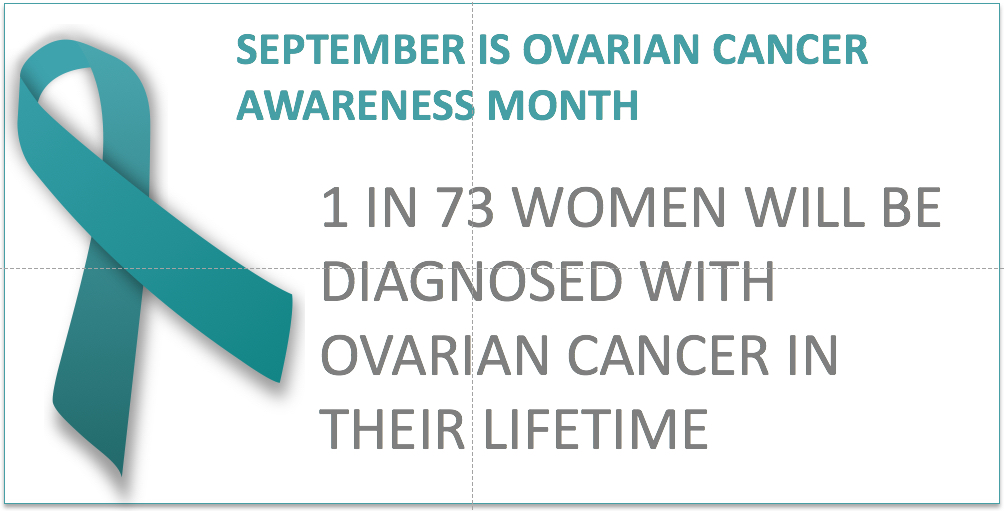 Via Unsplash
Via Unsplash
Sponsored by: AstraZeneca
A diagnosis of ovarian cancer can be associated with uncertainty, fear and many questions. How will my friends and family react when I tell them? How will this impact me financially? What do I do next?
An estimated one in three people with cancer experience anxiety, depression, or an adjustment disorder, according to a study published in the Journal of Clinical Oncology. While learning to cope with cancer can be difficult, there are a number of steps you can take to help. Some of these steps you might consider are to:
- Find someone you can talk to. Having a strong support network can help you manage the many things that become a part of your life following an ovarian cancer diagnosis, such as physician visits and adjusting to your treatment regimen. Think about sharing your feelings with your family, friends, and health care team to help them better understand what you are going through and how to help you
- Express your emotions in new ways. Do not be afraid to speak up – loved ones cannot help you unless they know what is happening in your life. However, during times when you would prefer not to talk about your diagnosis, you may consider activities such as painting, poetry or music
- Take care of your physical needs. Staying active, getting enough rest and fueling your body with good nutrition are important to achieve the best possible outcome from treatment. Many women also practice meditation or yoga to help prepare them for the next steps of their journey
- Educate yourself on ovarian cancer. The first step after receiving a diagnosis is to collect as much information as you can. Ask your health care team to explain terms that are unfamiliar to you and be sure to ask questions. The more you know about the disease, the better equipped you will be to focus on the journey ahead
One important way women who have been diagnosed with ovarian cancer can educate themselves is to talk to their doctors about their BRCA status, as BRCA1 and BRCA2 gene mutations account for 15 percent of all ovarian cancers.
When BRCA genes are mutated, they are no longer able to repair damaged DNA properly – leaving cells more likely to develop additional mutations that can lead to cancer. In fact, medical guidelines now recommend that all patients with epithelial ovarian cancer (the most common form of ovarian cancer) be considered for BRCA testing – regardless of family history, age at diagnosis, or ethnicity.
Discovering that you have a BRCA mutation can help your doctor tailor your treatment plan and clinical trial options. If you have ovarian cancer and do not know your BRCA status, consider talking to your doctor to learn more about being BRCA tested as a next step. You may want to ask the following questions to help guide the discussion:
- What are the risks and benefits of BRCA testing?
- What does a positive or negative BRCA test result mean?
- What does the BRCA test entail?
The decision to be BRCA-tested is a personal one. However, if you have been BRCAtested, consider joining the conversation about your experience on social media using the hashtag #beBRCAware to help inspire hope in the ovarian cancer community this Ovarian Cancer Awareness Month.
Sources:
American Society of Clinical Oncology, Study Shows that Anxiety, Depression, and Emotional Distress Are Common for People With Cancer, Retrieved August 7, 2015. http://www.cancer.net/es/node/31936
American Cancer Society, Coping with your emotions, Retrieved August 7, 2015. http://www.cancer.org/treatment/treatmentsandsideeffects/emotionalsideeffects/copingwithcancerineverydaylife/a-message-of-hope-coping-with-emotions
National Cancer Institute, BRCA1 and BRCA2: Cancer Risk and Genetic Testing, Retrieved August 7, 2015. http://www.cancer.gov/about-cancer/causes-prevention/genetics/brca-fact-sheet#q1
Reviewed August 10, 2015
by Michele Blacksberg RN
Edited by Jody Smith





Add a CommentComments
There are no comments yet. Be the first one and get the conversation started!